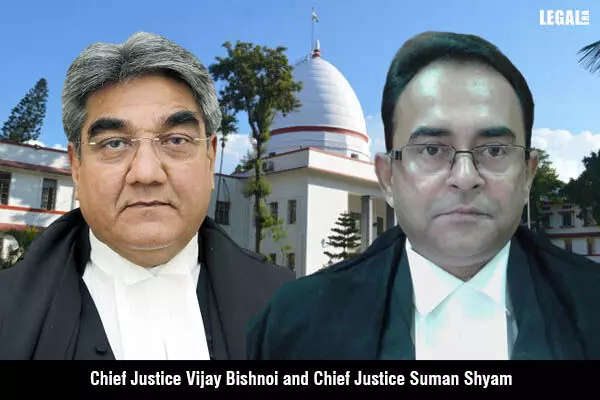- Home
- News
- Articles+
- Aerospace
- Artificial Intelligence
- Agriculture
- Alternate Dispute Resolution
- Arbitration & Mediation
- Banking and Finance
- Bankruptcy
- Book Review
- Bribery & Corruption
- Commercial Litigation
- Competition Law
- Conference Reports
- Consumer Products
- Contract
- Corporate Governance
- Corporate Law
- Covid-19
- Cryptocurrency
- Cybersecurity
- Data Protection
- Defence
- Digital Economy
- E-commerce
- Employment Law
- Energy and Natural Resources
- Entertainment and Sports Law
- Environmental Law
- Environmental, Social, and Governance
- Foreign Direct Investment
- Food and Beverage
- Gaming
- Health Care
- IBC Diaries
- In Focus
- Inclusion & Diversity
- Insurance Law
- Intellectual Property
- International Law
- IP & Tech Era
- Know the Law
- Labour Laws
- Law & Policy and Regulation
- Litigation
- Litigation Funding
- Manufacturing
- Mergers & Acquisitions
- NFTs
- Privacy
- Private Equity
- Project Finance
- Real Estate
- Risk and Compliance
- Student Corner
- Take On Board
- Tax
- Technology Media and Telecom
- Tributes
- Viewpoint
- Zoom In
- Law Firms
- In-House
- Rankings
- E-Magazine
- Legal Era TV
- Events
- Middle East
- Africa
- News
- Articles
- Aerospace
- Artificial Intelligence
- Agriculture
- Alternate Dispute Resolution
- Arbitration & Mediation
- Banking and Finance
- Bankruptcy
- Book Review
- Bribery & Corruption
- Commercial Litigation
- Competition Law
- Conference Reports
- Consumer Products
- Contract
- Corporate Governance
- Corporate Law
- Covid-19
- Cryptocurrency
- Cybersecurity
- Data Protection
- Defence
- Digital Economy
- E-commerce
- Employment Law
- Energy and Natural Resources
- Entertainment and Sports Law
- Environmental Law
- Environmental, Social, and Governance
- Foreign Direct Investment
- Food and Beverage
- Gaming
- Health Care
- IBC Diaries
- In Focus
- Inclusion & Diversity
- Insurance Law
- Intellectual Property
- International Law
- IP & Tech Era
- Know the Law
- Labour Laws
- Law & Policy and Regulation
- Litigation
- Litigation Funding
- Manufacturing
- Mergers & Acquisitions
- NFTs
- Privacy
- Private Equity
- Project Finance
- Real Estate
- Risk and Compliance
- Student Corner
- Take On Board
- Tax
- Technology Media and Telecom
- Tributes
- Viewpoint
- Zoom In
- Law Firms
- In-House
- Rankings
- E-Magazine
- Legal Era TV
- Events
- Middle East
- Africa
Gauhati High Court Quashes Demand & Penalty, Finds No Misstatement Or Intent To Evade Service Tax

Gauhati High Court Quashes Demand & Penalty, Finds No Misstatement Or Intent To Evade Service Tax
The Gauhati High Court recently ruled that when an Assessee company has provided every detail regarding the availment of CENVAT Credit in its ST-3 Returns, and these details have been duly considered by the Central Excise Commissioner, the allegation of willful misstatement or suppression must be explicitly mentioned in the show-cause notice issued by the Department.
In this case, the Division Bench of Chief Justices Vijay Bishnoi and Suman Shyam found that the Department had not established any willful misstatement or intent to evade payment of service tax by the Assessee. The court emphasized that the absence of any element of misstatement or contravention of the Service Tax Rules with the intent to evade tax nullified the basis for the Department's claim.
The case revolved around the Assessee, who provided "Erection, Commissioning or Installation Services" to various organizations under specific contracts while also supplying materials like RCC Poles and conductors under separate contracts. The Assessee contended that the supply of materials was not subject to Service Tax, although the services rendered were. However, the Department alleged that the Assessee violated Rule 3 and Rule 6 of the CENVAT Credit Rules, 2004, by availing and utilizing CENVAT Credit on inputs used for rendering exempted services.
An audit objection led to the issuance of a demand-cum-show-cause notice by the Commissioner of Central Excise and Service Tax, which sought to recover the allegedly ineligible CENVAT Credit amounting to ₹1,30,84,835. Although the Assessee did not contest the demand on its merits, it challenged the show-cause notice on the grounds of being issued beyond the period of limitation. Despite the Commissioner confirming the demand, the order was reversed by the CESTAT upon appeal.
In its observations, the Gauhati High Court acknowledged that the Assessee had indeed availed ineligible CENVAT Credit, which was not permissible under the CENVAT Credit Rules, 2004. However, referring to Section 73 of the Service Tax (Finance Act, 1994), the court noted that a show-cause notice must be served within 18 months unless there is evidence of fraud, collusion, or willful misstatement, in which case the limitation extends to five years.
Given that the Assessee had disclosed all relevant details in its ST-3 Returns and there were no allegations of willful suppression or misstatement in the show-cause notice, the court concluded that there was no illegality in the order passed by CESTAT. Consequently, the High Court dismissed the Revenue's appeal.



